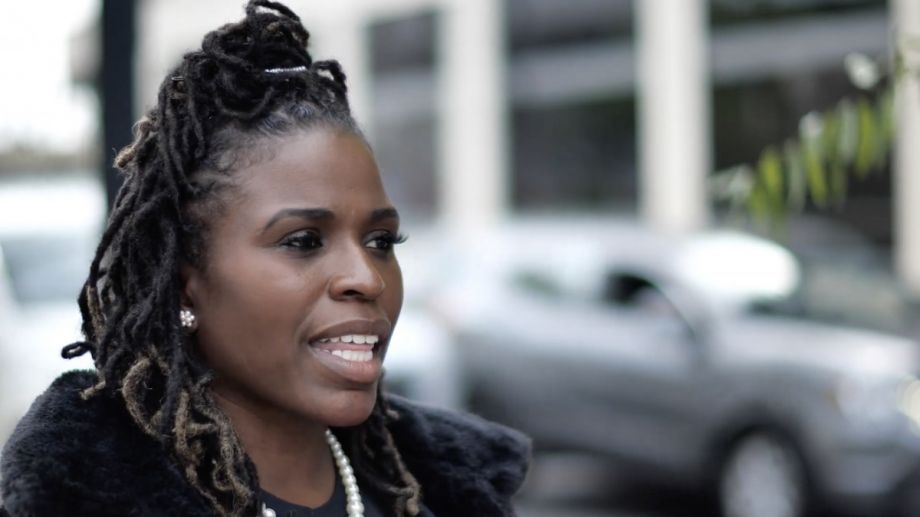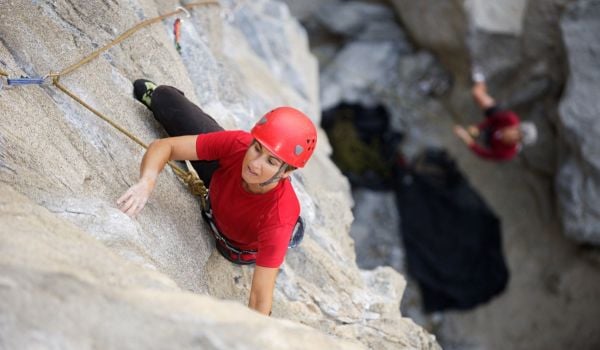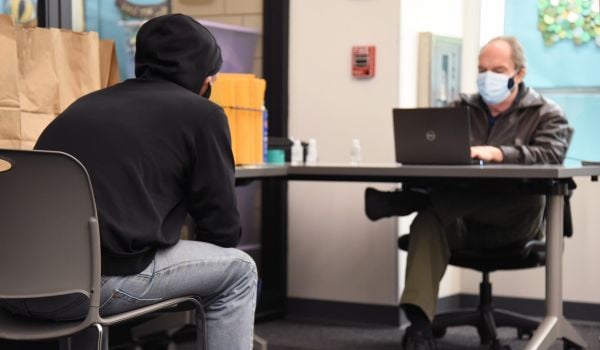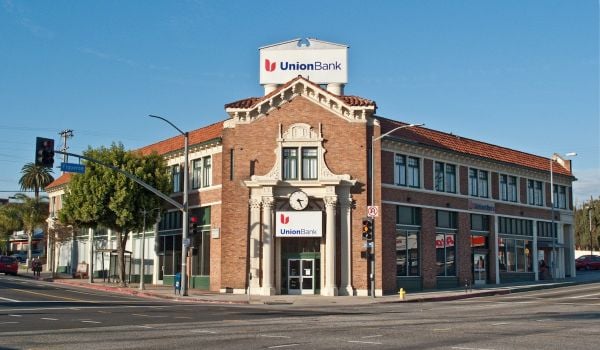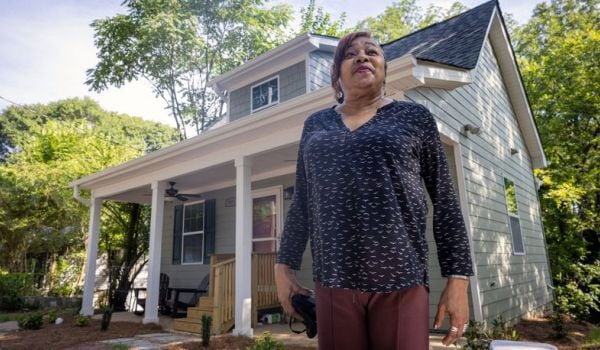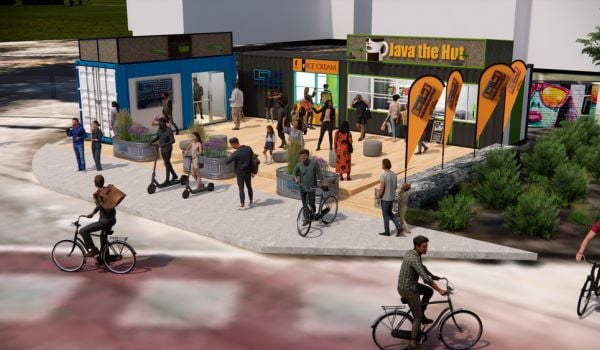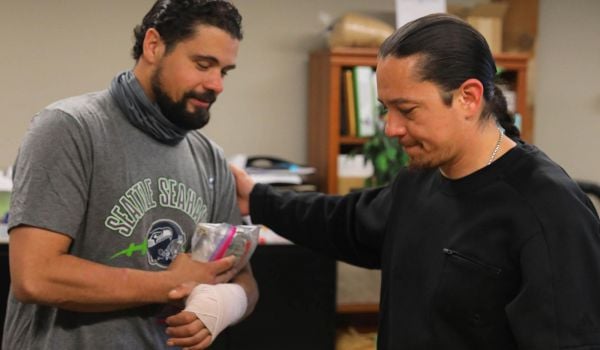In a historic move, the Atlanta City Council voted unanimously this October to make formerly incarcerated people a protected class. The amended city ordinance prohibits discrimination against individuals for criminal convictions, just as it offered legal protections against racial, age-based and other forms of discrimination.
It’s the result of three months of concerted organizing and advocacy by the nonprofit Barred Business – and the years of difficulty finding a job and getting business loans that its founder, Bridgette Simpson, experienced after her release from prison.
Simpson describes her 10-year incarceration by the Georgia Department of Corrections as a “complete excommunication from society.” When she came home in 2018, she faced numerous barriers that made it feel like the excommunication wouldn’t end: “It felt like I was serving an open-ended sentence that goes on and on.”
October’s unanimous vote, Simpson says, is “the first step in recognizing that we all are human beings.” Barred Business’ goal is to harness this local win into a national campaign targeting federal civil rights legislation.
An entrepreneur from a young age, Simpson had started her own clothing company back in 1995. After her release, the employment barriers she faced pushed Simpson to continue her path of entrepreneurship. That’s the case for many formerly-incarcerated people, she notes.
“Let’s face it, being an entrepreneur is more appealing when you compare making minimum wage,” she says. “You’re barred from different opportunities so you have to figure out different ways to earn … A lot of formerly-incarcerated people are entrepreneurs because they don’t have a choice.”
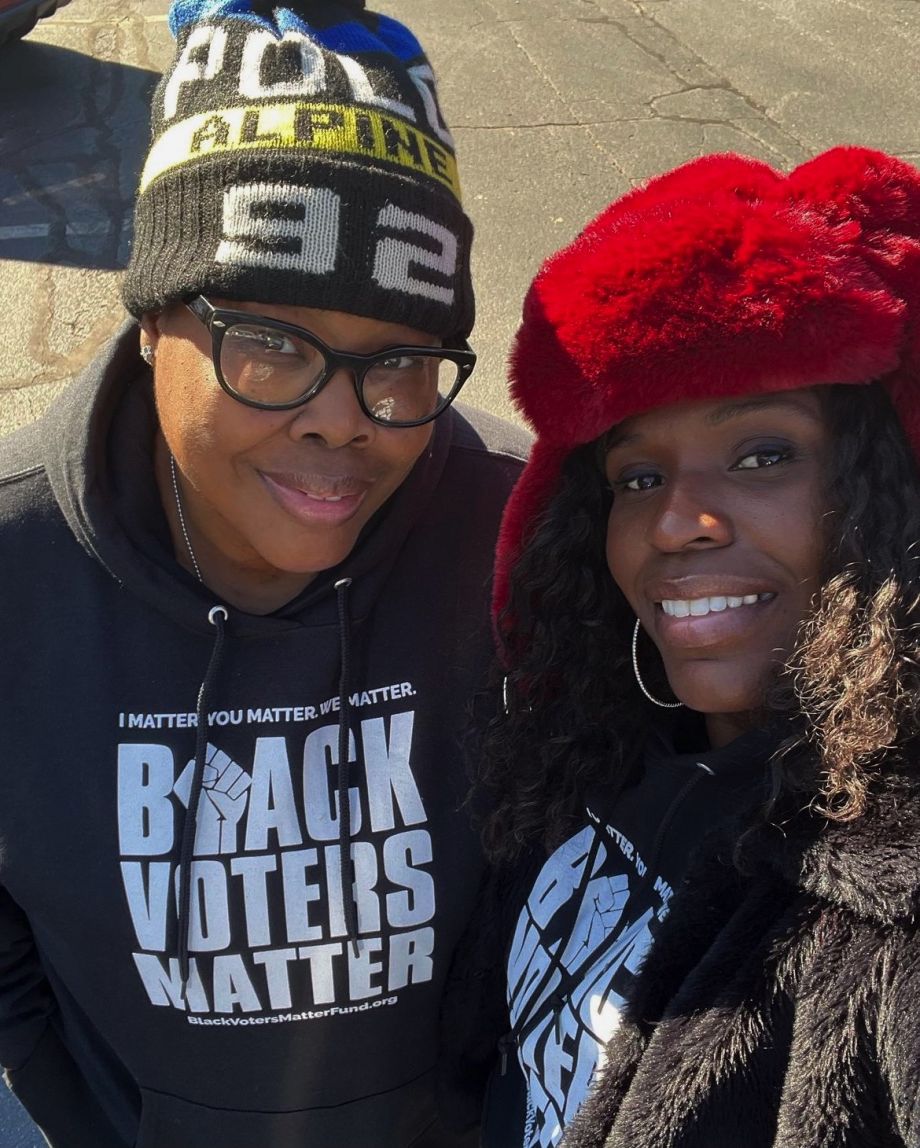
Denise Ruben and Bridgette Simpson (Photo courtesy Barred Business)
But when the pandemic hit, Simpson found out that formerly-incarcerated business owners were barred from applying for Paycheck Protection Program loans. In response, she joined her former prison roommate, community organizer Denise Ruben, to co-found Barred Business, an organization working to help formerly incarcerated people. Then the organization launched an Atlanta-based campaign to establish formerly-incarcerated people as a protected class, which would legally protect them from discrimination.
“The society is sleeping on formerly-incarcerated people,” Ruben says. “We’re here to show Atlanta, Georgia, the world, who we are and that we deserve a seat at the table. And if you’re not going to give it to us, we’ll make our own table.”
In 2020, facing business disruption due to the pandemic, Simpson found she couldn’t apply for a Small Business Administration PPP loan due to her conviction. She led a grassroots fundraising campaign to distribute microgrants to formerly-incarcerated business owners, raising over $100,000 for 115 grants. (The Ida B. Wells Just Data Lab mapped the impact of their work.)
“We didn’t get started to become an organization, we just got started to solve a problem,” she says. “We had to become the SBA for our communities.”
The effort connected Simpson and Ruben to a larger network of formerly-incarcerated business owners. She and Ruben, who had also started a business upon coming home, decided to formalize support under the organization Barred Business.
Not only does the pair have small business experience, they have deep ties to Atlanta’s organizing scene. “We’ve worked to organize bail outs for women, we’ve housed them,” Ruben says. “We’ve done a lot of building relationships with other organizations and our people.”
Barred Business’ early goal was to start a Community Development Financial Institutions (CDFI) Fund. “No one would fund formerly-incarcerated people who wanted to be part of the banking system,” Simpson says. “There was an aha moment when we asked: What would it look like if we were protected from what’s become a handicap to us?”
To address the numerous barriers — from applying for a PPP loan to a Georgia fishing license, adopting a child, becoming a sperm donor or the legal guardian of a family member — they decided to work for baseline protection as a “protected class,” which refers to groups of people legally protected from being harmed or harassed by laws, practices and policies that discriminate against them due to a shared characteristic.
Simpson met numerous politicians in her organizing work and, seeking a champion for the campaign, reached out to Atlanta city councilmember Matt Westmoreland. “I asked for his help to champion something that would give us an opportunity to be human, to have our human rights restored,” she says. He agreed.
With the councilmember’s support, the campaign applied a “building block strategy” to secure an early, local win through amending local municipal ordinances. They worked with Councilmember Westmoreland to write a protected class ordinance while also launching a public Protected Campaign with a social media toolkit that outlined demands, calls to action and talking points. The goal: Get other Atlanta city council members on board to approve the ordinance.
Barred Business formed a “Protected Coalition” by reaching out to its network of formerly-incarcerated business owners and canvassing neighborhoods heavily impacted by the criminal justice system. They secured support from established human rights organizations — like the Southern Center for Human Rights, the ACLU of Georgia and the National Council for Incarcerated and Formerly Incarcerated Women and Girls — as well as local organizing groups, like Surviving Freedom and the Free Atlanta Abolition Movement.
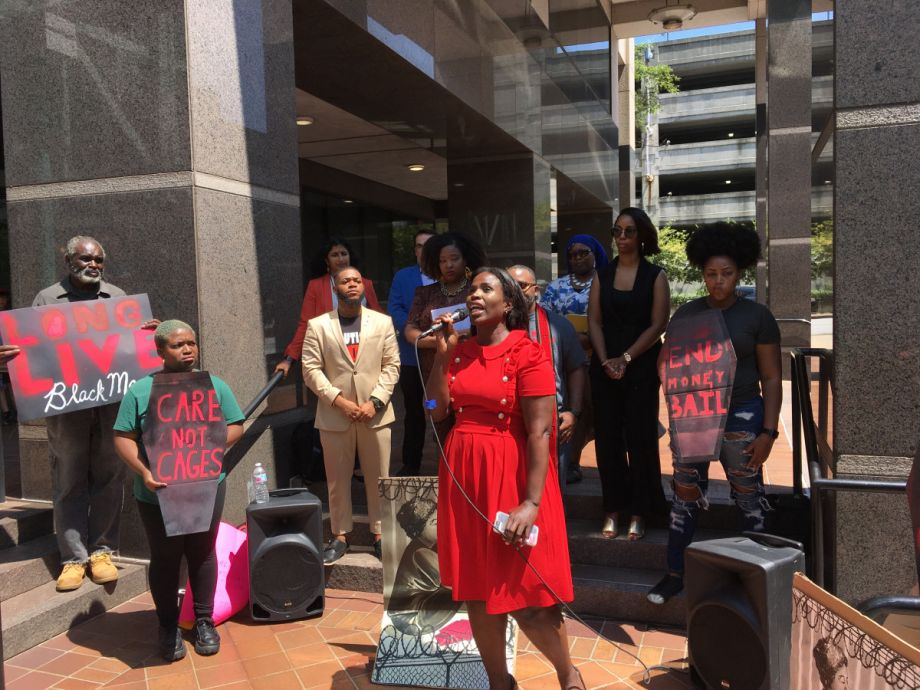
Bridgette Simpson, lead organizer of Women on The Rise’s campaign to close Atlanta’s city jail, spoke outside the Fulton County Government Center in 2019. (Photo by Maggie Lee / Saporta Report)
The campaign centered the leadership and needs of justice-impacted people. “Our core team is all formerly-incarcerated folks — who better to do the work?” asks Ruben.
Many people with lived experience showed up to testify at the October City Council hearing about the barriers they’ve faced post incarceration. “Then, something magical happened,” Simpson says. With a unanimous 13-0 city council vote, formerly-incarcerated people became Atlanta’s eighth protected class.
Simpson and Ruben see the vote as the beginning of a much longer and larger campaign, both in Atlanta and nationwide.
In the city, phase two of the campaign involves ensuring enforcement of the ordinance is properly enforced. “We’re working to build relationships with the other protected classes in Atlanta,” Ruben says. “A part of our strategy is developing a task force that will represent a person from each of the protected classes.” The task force will work with Atlanta’s city council to ensure enforcement. They’re also requesting a centralized phone number where members of protected classes can report discrimination.
Nationwide, Simpon and Ruben believe their “building block strategy” can harness Atlanta’s win to change state statutes and ultimately target federal legislations of the Civil Rights Act of 1964 and the Civil Rights Act of 1991.
Barred Business is working with organizers in Chicago, Miami-Dade County, Tennessee and Minneapolis to launch local campaigns. “We’re looking at different places that have high numbers of system-impacted people,” Simpson says. They hope to provide guidance to Protected Coalitions across the country and create a Protected Network as an umbrella support group.
“We’re just a bunch of people that wanna be free,” Simpson says of this quickly-growing coalition.

Emily Nonko is a social justice and solutions-oriented reporter based in Brooklyn, New York. She covers a range of topics for Next City, including arts and culture, housing, movement building and transit.
Follow Emily .(JavaScript must be enabled to view this email address)

